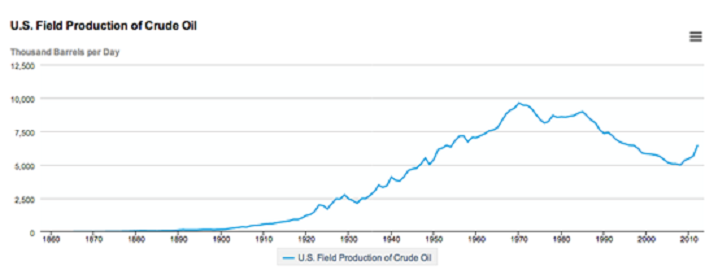Worried about having enough oil on hand to weather supply shocks in the wake of an OPEC embargo, the U.S. banned exports of crude oil in 1973. Now the U.S. faces a question that hardly anyone anticipated five years ago: Whether to lift the ban as accelerating U.S. crude oil production (chart below, choose 'show images' in your email if you can't see it) hits its highest level since the mid-1990s.

Bloomberg's Brian Wingfield details the debate on lifting the restrictions, set
off in part by Alaska Senator Lisa Murkowski. While nobody expects this kind of
change to happen overnight, the prospect of the U.S. becoming an oil exporter
has captured the imagination of policy makers and the attention of analysts.
In a related article, Asjylyn Loder looks at how U.S. exports of
gasoline are already roiling world markets. It's a surprising twist in the oil story because the
crude export ban has made Americans unused to thinking about the U.S. exporting
oil products in any form.
In fact, U.S. refined petroleum exports, which are notubject to the ban,
have tripled in a decade . Loder shows how increasing production
and expanding infrastructure are turning the U.S. into a bigger player in the
global gasoline market, and traces the worldwide ripple effects of this
unexpected boom.
(by Mark Gimein, Bloomberg.com, 09 Jan., 2013)



